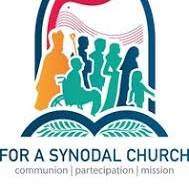A report on a research seminar that examined the three-year journey of the 16th Regular General Assembly of the Synod of Bishops and sought specific implementation measures was published on the Now/Here Catholic website. This summary aims to convey the thoughts of some members of the Korean Church during the research seminar. Here is the address that will give you the page of the article—https://www.catholicnews.co.kr
On March 15, the Vatican's Synod Secretariat emphasized the role of local churches in implementing the synod. It explained that local churches should "appropriately 'accept' the direction expressed in the 'final document' of the 16th Ordinary General Assembly of the Synod of Bishops to fit the needs of local cultures and communities. This will be a three-year process that will end in October 2028. This article will only include the issues from the first of the two presentations in response to the final document.
A professor analyzed the theological foundation of the "Final Document" and explored how these insights can be applied to the church. He also emphasized that all church processes and procedures should be carried out through listening, discernment, consultation, decision-making, and responsible explanation and evaluation, based on transparency, to realize the prophetic power of the ‘Final Document’ insights.
He focused on theological explanations of listening and discernment methods, the subtle tension between consultation and decision, and discussions of evaluation methods. As a lay theologian, he also proposed a new way of imagining lay participation and lay ministry in the church.
A priest commented, "We need to approach the ‘final document’ from various angles and perspectives on theological reflection, inspiration, and practical implications.”
He asked whether the ‘final document’ suggests conversion and formation to realize synodalitas (walking together). While formation requires theological statements on the method and direction, results are not analyzed. For example, he said, “All churches in the world celebrate the Eucharist daily, but why do churches and believers not easily convert to a synodal life? Is the catechesis of the parish (church) leading people to a synodal life of faith? Is theological education cultivating clergy with a synodal attitude? Are today’s Catholic universities profoundly influencing the spread of Catholic values and beliefs? If we do not honestly ask ourselves these questions and make efforts to find answers, the theological statements can be empty.”
He said that most parishes today are “centered on the liturgy and the sacraments, so there is a risk that clergy will only be administrators of the sacraments and ceremonies” and not fully active as religious educators and formators. He suggested we should honestly consider this reality and find new formation methods.
He further said that forming a public discourse is important for the change and renewal of the church community and urged church media and theologians to work toward this goal. Although they may be unable to create a grand public discourse, he hoped there would be more small-scale humanistic religious study groups among believers beyond parish boundaries.
One priest said: “If Synodalitas is a process of renewing the essence of the church, what is important in this process is not ‘integrating the people of God into the hierarchy,’ but that the structure of the church must ‘find its own position within the people of God,’” and that “the identity and mission of the laity must be fully recognized and accepted as the ‘true subject’ of the church.”
He pointed out that “laymen become ‘true subjects’ according to the essential nature of baptism, and the sacrament of baptism grants rights, not just duties, in the church” and that “if the church fails to accept this, the relationship between laymen and ordained clergy will remain in the institutional church model that reflects an unequal social model, and the church of ‘participation and shared responsibility’ will disappear.”

No comments:
Post a Comment